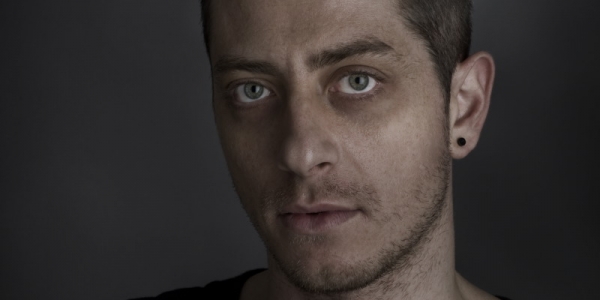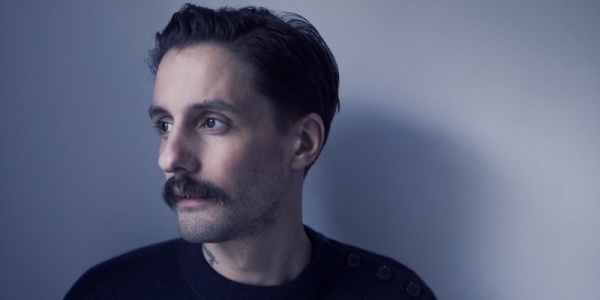“I have three more interviews after you. What is it with you guys?!” he laughs, referring to his morning schedule of interviews from Australia. “I’m not even that interesting.” Despite being complete uninteresting by his own account, the evidence suggests otherwise. Squillace grew up in Napoli, coming up in the electronic music scene alongside Marco Carola and Rino Cerrone. “I’ve been really lucky to grow up in Napoli. It’s not too complicated a city and it’s not very cosmopolitan. It’s a tough city,” he explains. As a 15-year-old, he and his friends were already putting on parties responsible for bringing out heavy-hitters like Richie Hawtin and Jeff Mills to Napoli for the first time. But after a sojourn to London as a young man, the confines of the southern Italian city with a population of under one million people seemed too much.
“After London I moved back to Napoli to study sound engineering and I was like, ‘I need to get the fuck out of here!’ It was between Berlin, Amsterdam and Barcelona. Berlin? Everyone’s in Berlin. Why am I going there? Amsterdam, I love the city. It has beautiful architecture and people, but it’s just too cold. So I went to Barcelona and I really loved it. I’m not here that much now but when I come back I’m really happy.”
It’s in his Barcelona office that I catch him for this interview. He’s happy, surrounded by props from a recent video shoot. He grabs a cubed art piece and thrusts it into the Skype camera enthusiastically, explaining the stop-go film technique used on a recent shoot. “It’s very inspiring,” he explains about his new label, This and That Lab. “There is a bunch of people at the office and we’re brainstorming every day.”
Created to merge his love of music with his passion for art and media exploration, Squillace has big plans. “We try to connect with different people in the arts scene. For example, we’ve teamed up with a contemporary art gallery from Napoli and every cover is going to be done by a different artist.” He continually stresses the word ‘we’ when discussing This and That Lab’s next project, the branding and advertising for a music festival. The label seems a genuine collaboration of creative minds and something Squillace seems proud of. “We just don’t want to release something and say, ‘That’s the music. That’s it.’ We’re not kids anymore.”
Despite the advertising campaigns and art show curation that keeps him busy at the office, it’s still music that takes him across the globe. He’ll soon be in Miami to play a few dates in the big electronic music love-in that is the Winter Music Conference and it’s something that he’s looking forward to. “That’s what I like about conferences and festivals because all my friends that live in different parts of the world go there. It’s a big get-together. That’s the highlight of every festival for me, more than the actual gig itself,” he smiles to himself. “I love listening to music and partying. That’s what I do. I don’t work in a bank!”
The reference to his gratefulness for not working a standard nine-to-five job is one he mentions a couple of times throughout the interview. Like most musicians not chained to a desk, he’s aware that he’s living a life that most only dream of, but when asked if he’ll still be doing it in 15 years like elder statesmen Sven Väth or DJ Hell, he’s non-committal. “I feel tired already,” he grins. “When I look at [Vath and DJ Hell], they still play good music. They still have a genuine interest and do genuine research into the music, the clubbing industry. I could do that. I might use some Botox though,” he adds jokingly at the end.
He returns to Australia’s shores as part of the Circoloco tour, a clubbing brand to which he holds a long association. After a successful debut tour alongside Jamie Jones in 2010, Australia is a destination he is looking forward to revisiting, despite the long haul travel to get here. “First thing is like, ‘Wow, you fly all the way to Australia and it’s shit. It’s a long way.’ But trust me, it’s pretty amazing.” He explains further that he loves the openness of the clubs here, gushing about Melbourne’s famed Revolver where the decor and lighting allowed him to make a real connection with the crowd. “Revolver was a nice club. I want [to DJ at] a fancy, nice place. That doesn’t mean bottle service. It means it needs to be nice. It doesn’t need to be so dark. I want to see people. I want a place where I can talk to them,” he says, then as if to hint to any future promoters out there. “When you hear that underground dance music needs to be in a dark place. It’s bullshit! It doesn’t.”
BY RICK WARNER

